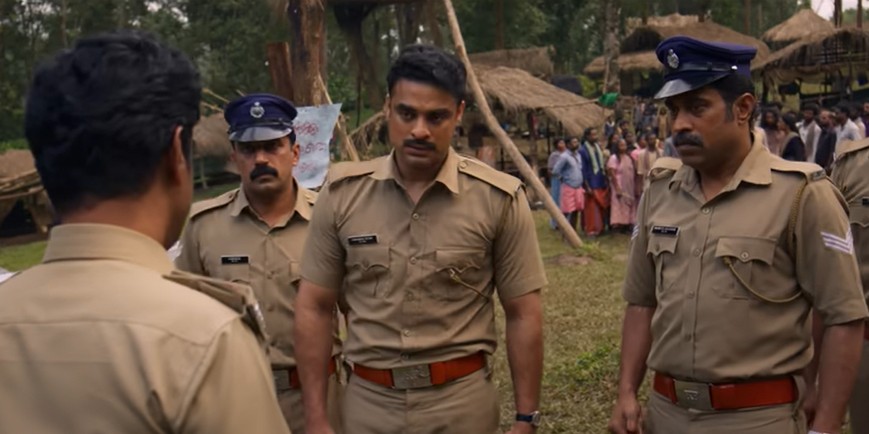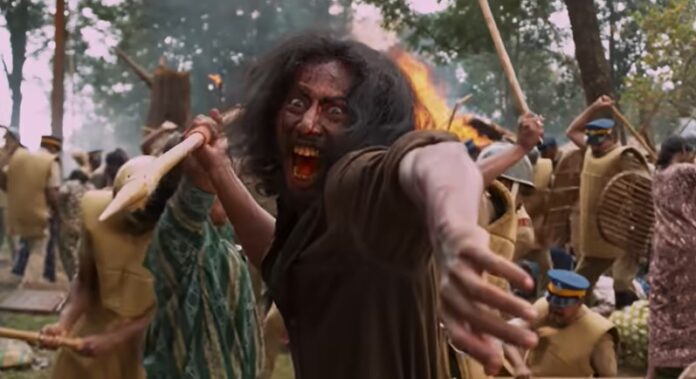May 24, 2025: Narivetta (Jackal Hunt) is not the kind of film you watch for comfort. It drags you, headfirst, into a part of India that’s rarely seen on screen, not because it doesn’t exist, but because it’s often buried under bureaucracy, silence, and selective memory. But while it wants to tell an urgent, deeply political story, its lens feels torn; stuck between the system and those crushed beneath it.
Set in the tribal heartland of Wayanad, Kerala, the film is inspired by the 2003 Muthanga incident, a real-life confrontation between Adivasi land rights protestors and the state police. But director Anuraj Manohar keeps things fictional enough to dodge legal landmines while drawing obvious parallels. It begins with a chase, not just of a fugitive, but of memory itself.
Tovino Thomas plays Constable Varghese Peter, a reluctant cop caught between duty and conscience. He begins the story hot-headed, easily provoked, and entirely indifferent to the tribal protest he’s been deployed to monitor. When he lashes out violently at a young tribal protestor, his colleagues, once critical, start embracing him. It’s a grim reward for brutality, and it sets the tone for the rest of the film.
Tovino Thomas Leads Narivetta, But the Real Heroes Remain Unseen

The real strength of Narivetta lies in its atmosphere. The forest feels alive, not just as a setting, but as a silent witness to decades of betrayal. Vijay’s cinematography captures its tension with stark realism, while Jakes Bejoy’s score pulses like a second heartbeat. Scenes of police camps, quiet resistance, and everyday survival among the protestors are all filmed with a raw texture that lingers.
But for all its technical finesse, the film suffers from a glaring issue: perspective. While it focuses heavily on Varghese’s internal conflict, his backstory, even his romantic struggles, it gives the protesting Adivasis far less narrative weight. Aside from activists Shanthi (played powerfully by Arya Salim) and Thaami (Pranav Teophine), most tribal characters remain unnamed, voiceless, or only fully visible when being brutalised.
The imbalance becomes more obvious in the final act. Graphic violence is used to shock — a child gunned down, women dragged, elders trampled, but this is also when the tribal characters finally get attention, not as humans with depth, but as symbols of suffering. It’s emotionally wrenching, yes, but narratively problematic.
Performances are a mixed bag. Tovino Thomas is convincing in patches, but his emotional transitions feel rushed. Suraj Venjaramoodu’s Head Constable Basheer brings some nuance but is underserved by the writing. Cheran is restrained but impactful as a high-ranking officer representing systemic rot. Arya Salim, however, stands out, her portrayal of Shanthi is fiery, grounded, and unforgettable.
Narivetta Delivers Impact, But Not from the Right Perspective
Narivetta is not a bad film. In fact, it’s often powerful and deeply uncomfortable, and that’s by design. But its most urgent flaw is the very thing it wants to criticise, silencing the oppressed by letting others speak for them. When your story is about a people pushed to the edge, shouldn’t the camera stay with them?

